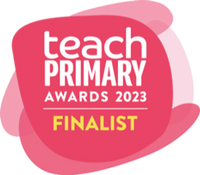In an era dominated by digital communication, the significance of oracy, the ability to express oneself verbally with clarity and confidence, has never been more crucial. We might forgive previous generations for focusing on reading and writing and less on oracy, as it was a form of communication typically learnt incidentally.
Oracy skills: Caught and not taught?
Oracy skills, once acquired through verbal interactions, are now in need of explicit teaching as children engage less in face-to-face communication. Over the last 20 years, opportunities for young children to engage in self-directed free play with peers outdoors or during the school day has dramatically declined, (Lacey et al, 2022). Play allows children to enhance oracy skills by engaging in various playful experiences to practice speaking and listening, express themselves creatively, and engage in meaningful interactions with peers and adults. Therefore, explicit instruction in oracy has become essential to equip children to communicate effectively, express themselves confidently, and engage meaningfully in various social and academic settings. Teaching oracy skills directly addresses the growing gap in children's spoken language development caused by decreased verbal communication opportunities.
‘You can have brilliant ideas, but if you can’t get them across, your ideas won’t go anywhere.’ - Lee Iacocca
In Amy Gaunt’s book, The Oracy Imperative, she outlines that oracy skills need to be explicitly taught and that just like reading and writing, teachers need a framework to teach and model it.
‘Oracy gest learners the interview, oracy performance gets them the job’ - The Oracy imperative
Beyond traditional academic achievement, mastering oracy fosters the development of essential life skills, enabling individuals to articulate ideas, navigate complex discussions, and engage in meaningful dialogue.
The Oracy Framework
The Oracy Framework is a comprehensive structure that outlines the essential skills young people need to develop effective spoken language communication. It consists of four key strands that encompass various aspects of oracy development:
- Physical Strand: Focuses on elements like voice projection, eye contact, and other physical aspects of effective communication.
- Cognitive Strand: Emphasizes the cognitive skills involved in oracy, such as critical thinking, reasoning, and problem-solving.
- Linguistic Strand: Centers on language skills, vocabulary development, articulation, and the ability to express ideas clearly.
- Social and Emotional Strand: Addresses the interpersonal aspects of communication, including active listening, empathy, collaboration, and respectful interaction.
Edtech and oracy: Unite for Academic Symphony!
Edtech platforms like Bedrock Learning play a crucial role in enhancing vocabulary and grammar skills, which in turn can significantly contribute to the improvement of oracy skills. Providing learners with structured lessons that focus on vocabulary acquisition and grammar proficiency lays a strong foundation for effective communication. A rich vocabulary and a solid grasp of grammar not only enhance reading and writing abilities but also boost learners' confidence in expressing themselves verbally. Through interactive exercises, engaging content, and targeted feedback, Bedrock helps learners develop the language skills necessary for articulate spoken communication.
A Future Where Thoughts Trump Words
Earlier this year, Noland Arbaugh, made history by becoming the first person to have the neuralink chip implanted into his brain and recently appeared to move a cursor using his brain to play online chess. Elon musk intends to develop this technology with the eventual goal of humans communicating by reading each others' thoughts rather than speaking.
But until then...
Schools and individuals should prioritise oracy skills as they form the foundation for effective interpersonal communication, collaboration, and critical thinking. In a world inundated with information, the power to communicate persuasively and articulate thoughts coherently becomes a valuable asset. By taking oracy more seriously, schools empower learners to thrive not only academically but also socially, preparing them for the demands of an interconnected and communicative society.





